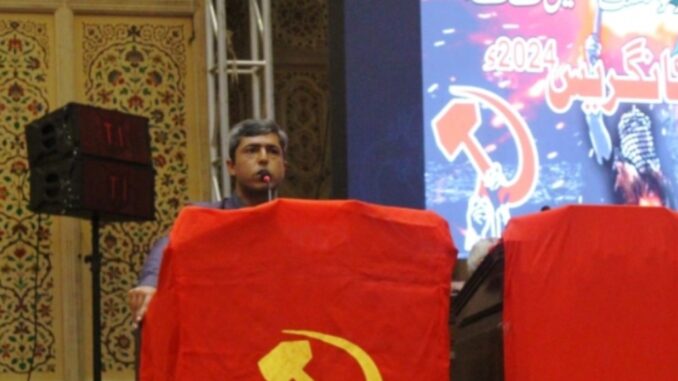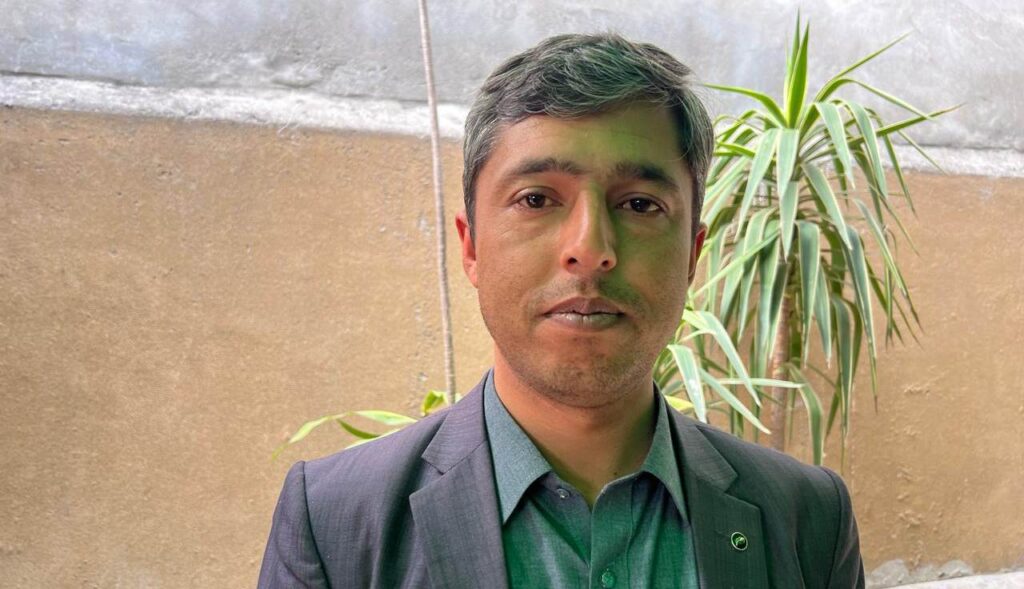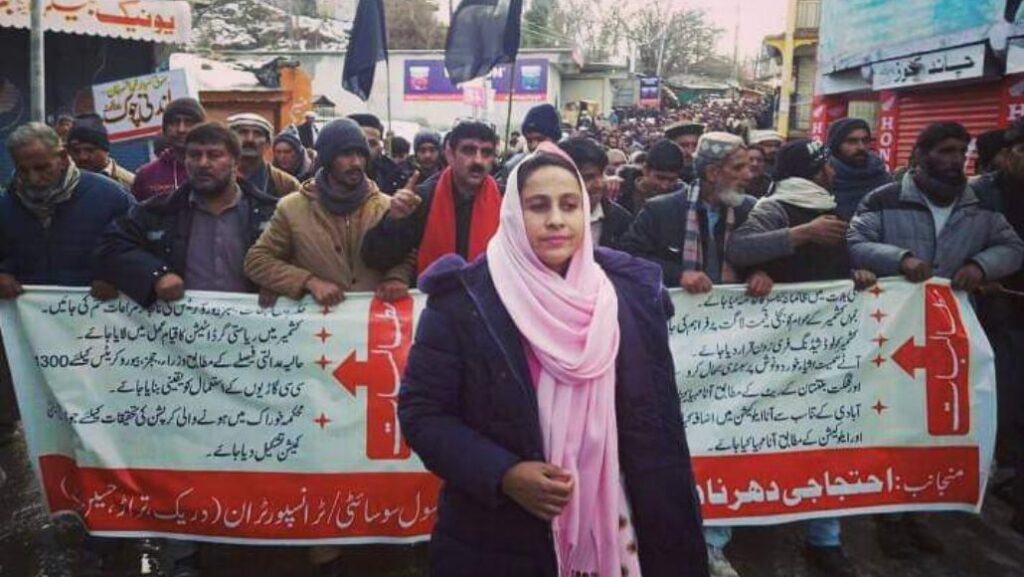
Interview with Haris Qadeer, Journalist of Pakistan occupied Jammu Kashmir and member of the national leadership of The Struggle, ISL section in Pakistan
Tell us about the current movement that is shaking Jammu Kashmir
Perhaps for the first time in history, especially in Pakistan occupied Jammu Kashmir, a movement has erupted on a class basis, and that is very important. In the past, the focus of the movement has been the liberation of Indian occupied Jammu Kashmir. Now the focus has shifted; there is a large movement in Pakistan occupied Jammu Kashmir and the people have come out in particular to claim their right over their resources.

When India revoked the special status of Jammu Kashmir on August 5, 2019, there was a massive eruption in Pakistan occupied Jammu Kashmir for the liberation of Indian occupied Jammu Kashmir. But that movement quickly disintegrated and couldn’t move forward. The current movement erupted on May 9, 2023 against hikes in the prices of flour and electricity bills, and people have been mobilizing since then.
In the last six months the masses have refused to pay their electricity bills and there have been multiple sit-ins in different districts that are ongoing on a regular basis.
As in so many movements, there is a crisis of leadership. The Awami (People’s) Action Committee is mostly in the hands of the petty bourgeois leaders of the Transport and Commerce unions and second tier nationalist parties. This is the reason why they were unable to grasp the intensity of the movement’s demands and failed at negotiating with the government.
This movement was so strong that it pushed the government to open the door to negotiate and was almost defeated. But the negotiations went on for three months, and the demands they offered to meet were insufficient. The very next day after the agreement was announced this February 4, the people rejected the negotiations and continued the movement.
This situation has pushed, not only the government into a corner, but also the Awami Action Committee. The people are still not paying their bills, that is why the pressure is mounting on both.
What role is The Struggle playing?
Our organization’s role was critical in this movement in devising the demands, the program, even in the formation of the Action Committee. We play a decisive role in the Committee and a leading role in many localities. Our comrade who is in the Action Committee rejected the agreement that was reached with the government and endorsed the continuation of the movement’s protest. It was our organization that confronted the Committee against those negotiations. That was one of the reasons for which the Committee was forced to go back to the people and back to the negotiations.
Obviously the movement will carry on, so the people will have to craft a new leadership for the movement to move forward. Our organization, together with other allies, are making sure to build enough pressure on the Committee so that it doesn’t back down from the demands and continues the movement.
Women played a key role in the movement…
Our organization had a lot to do with that. It was on our initiative that the program and the strategy of the Action Committee included a certain day on which women and kids would march. Since there are many elements of cultural backwardness in the region, there were many attacks on this march and many attempts, even within the Committee, to sabotage it. But despite those attacks, our women comrades played an exceptional role in defending the initiative and led the marches in every locality except for one.
The most critical place for the women’s marches was Rawalakot, where there was immense pressure from the state, the clergy and the right wing. They tried to intimidate women and do everything they could to try to stop them from protesting on the streets. But in spite of this, over 700 women marched in Rawalakot that day.

Tell us about the recently founded People’s Revolutionary Front (PRF) and the elections it ran in?
For a long time our work was based on the youth, leading the Jammu Kashmir National Students Federation (JKNSF) since 2006. Characterizing that there would be mass movements in the future, after a lengthy discussion in the organization, we decided to launch a political front with our comrades and sympathizers and founded the PRF in July of 2022.
It is in a nascent stage and we don’t have much experience in mass politics. The local government election of 2023 was the first one in which we participated. We presented candidates in 27 Union Councils. The Struggle supporter Nosheen Kanwal won her seat in the Rawlakot Munisipal Corporation, three comrades finished in a close second place, and overall our candidates won 35% of the votes in those constituencies.
We have great expectations and enthusiasm for the possibilities that are opening up for the construction of a political alternative of the working people in Jammu Kashmir.








